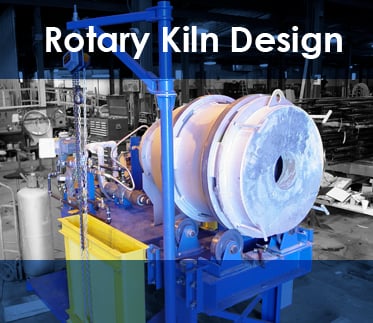Rotary kilns are widely used throughout a variety of industries to carry out chemical reactions and phase changes in materials.
A highly engineered device, rotary kilns must be designed around the specific requirements of the material and project goals at hand. Rotary kiln design takes many factors into account, with perhaps the most critical aspect being a thorough chemical analysis of the material.
Why Chemical Composition is Important
While it may seem obvious that the chemical composition of a material is an important factor in any processing operation, it is especially critical when working with rotary kilns. As rotary kilns are used to carry out chemical reactions and phase changes, the chemical composition of a material serves as the foundation of the design process. Apart from knowing the parameters of the intended reaction, a thorough chemical analysis is essential for many other reasons as well:
Predicting Combustion
Some materials will combust when exposed to increased temperatures, creating more heat than was initially put into the kiln. This would require that the rotary kiln be designed to accommodate the excess heat given off.
Process Atmosphere Requirements
In addition to predicting combustion, the chemical composition of a material is also important in creating the processing atmosphere required for the desired reaction to occur. There is potential for many scenarios, from an atmosphere devoid of oxygen, to one rich in carbon dioxide.
Exhaust Gas Treatment
Still another reason to understand the chemical makeup of a material and how those chemicals react together at certain temperatures, is to better estimate the exhaust gases exiting the kiln and the type of exhaust gas treatment that may be required.
While a particular fuel may enter the rotary kiln, that gas may pick up whatever the material being processed is releasing to create something new. Different gases need different treatments, so it is essential to know what gases are exiting the rotary kiln.
Conclusion
As an essential device in carrying out various chemical reactions and phase changes, rotary kilns are an invaluable thermal processing device. The diversity of these robust machines demands that each unit be designed around the unique process requirements at hand. Part of this design process is a thorough chemical analysis, which will aid in determining the overall design of the kiln, including accommodating excess heat from combustion, providing the proper atmosphere, and even helping to predict the exhaust gas treatment required.
FEECO is a preferred provider of custom rotary kilns for advanced thermal processing needs. We offer a unique testing facility where materials can be tested in both batch- and pilot-scale kilns. We then use the data gathered during testing to engineer and manufacture a custom rotary kiln to meet the unique process requirements. For more information on our thermal testing or our custom rotary kilns, contact us today!



